Most forest-dwelling species have been disrupted by fragmentation, new research suggests. Using a new analysis method, scientists assessed the impact of human-induced forest fragmentation on the abundance of 1,673 species of mammals, birds, reptiles and amphibians around the globe. Their findings revealed that in many forests, the animal communities in the core differ greatly from […]
Tag: ecology
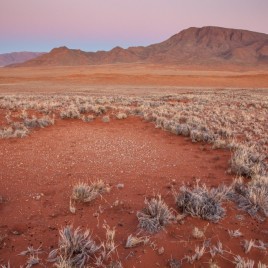
The mechanism behind Namibian “fairy circles”
Self-organization of plants or fungi into distinct geometric patterns, such as “fairy circles”, has been fascinating to scientists. One such example in the Namib Desert consists of patches of bare sand from one to 25 meters in diameter, surrounded by desert shrubs and tall grasses. The mechanism behind its pattern has been disputed for a […]
Recovery is possible for global fisheries
The world’s declining fisheries could recover in less than a decade if management reforms are implemented in time, according to researchers. Researchers looked at 4,500 fisheries in the world, representing about 78 per cent of the reported global catch using state of the art bio-economic models. The researchers found that while the majority of fisheries […]
Recipe for a waste-free world
A series of comment pieces discuss the circular economy – where industrial outputs become inputs so that goods at the end of their life turn into resources for other uses. In the first article Walter Stahel, who coined the concept of the circular economy, argues it is time to shift to a “resource-miser” economy. He […]
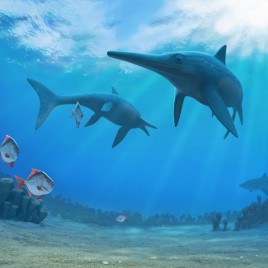
Solving the Disappearance of the Ichthyosaur
The Ichthyosaur, a dolphin-like reptile, ruled the oceans at the time of the dinosaurs, but then disappeared from the fossil record. Now new research seems to have figured out why. Their demise appears to be the result of climate change and a slow rate of evolution. Ichthyosaurs became extinct 90 million years ago, 28 million […]
Changing grasslands in North America
The productivity of grasslands in North America will increase in future climate scenarios, despite higher temperatures and increased drought, say researchers. They developed this forecast using a new model of the region’s hydrology and vegetation, incorporating data and images gathered from a network of cameras. The model showed an earlier start to the growing […]
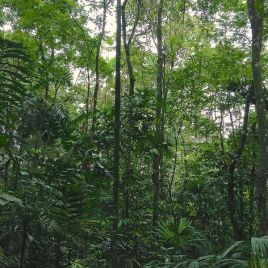
The resilience of tropical forests
Tropical rainforests that regrow after deforestation take up carbon more quickly than established forests and recover most of their biomass within decades, according to research on forests in Central and South America. Until now the recovery rate of these forests was unknown, hindering reliable estimates of their ability to absorb and store atmospheric carbon. […]
Overlapping fishing zones could be placing strain on oceanic sharks
Overlap in the ranges of sharks and fishing vessels is placing oceanic shark species at risk from overfishing say researchers. By monitoring the ranges of eight species of oceanic sharks by satellite, and tracking two fleets of longline fishing vessels over several years, researchers found about 80 per cent of the range of oceanic sharks […]
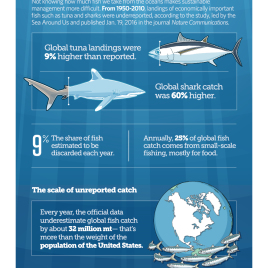
Underestimating global fisheries catches
Researchers have been substantially underestimating the total global fisheries’ catches by as much as 50 per cent, according to a new study. The results are based on “catch-reconstruction”, using scientific literature and asking local experts to help provide missing data. The researchers found increases in catches every year from 1950 to 1996, at which […]
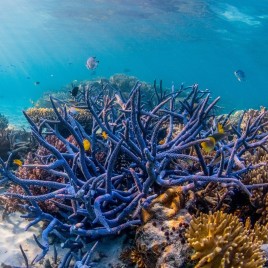
Marine protected areas failing to protect history
Marine protected areas (MPAs) are failing to protect the evolutionary diversity of fish and corals, according to a new study. The researchers conclude that over 7,000 million years of the evolutionary history of corals and 3,586 million years of fish evolution is not protected. Researchers studied 450 species of fish, which represent important components of marine biodiversity, and hundreds of species of coral, and calculated how […]
Icebergs leave trail of carbon-trapping plankton in their wake
Melting water from giant icebergs travelling across the Southern Ocean supports the growth of phytoplankton, which is responsible for as much as 20 per cent of the carbon trapped in the depths of the ocean. These icebergs enhance phytoplankton productivity for hundreds of kilometers, and their effects persist for at least one month after the iceberg […]
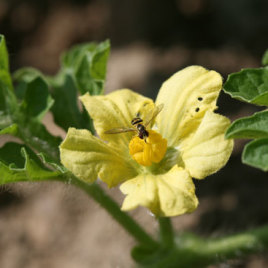
Don’t forget the other pollinators
Butterflies, wasps, beetles and flies might not be as effective pollinators as bees but new research shows their impact shouldn’t be discounted. Non-bee pollinators visit more flowers than bees so that even if they’re not such effective pollinators, their rates pollination are similar to bees. The analysis of 39 field studies revealed there is […]
The backwards effects of warming
Manipulating the food-web to reduce carbon-dioxide emissions may have the opposite effect under a warmer climate, according to a new study. Under certain conditions increasing water temperatures can cause what are called ‘trophic cascades’ – These occur when a population increase or decrease in a one species impacts other species in the food-chain, by making […]
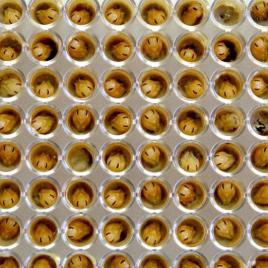
Farming fungus: A new bee-haviour
An accident in the lab has lead to the discovery that a specific species of bee, native to Brazil, farms fungus for their larvae to eat. This finding raises concerns about the use of fungicides in agriculture. Researchers made the discovery while attempting to breed queen bees, but found white fungus growing out of control, […]
Top predators protecting trapped ocean carbon
Over-harvesting top level predators from the oceans and coastal habitats could have far-reaching consequences on the carbon cycle and diminish our ability to offset climate change. Coastal vegetation, such as seagrasses and mangroves, are more efficient at capturing and storing carbon than tropical rainforests, and account for more than half of the ocean’s carbon storage […]
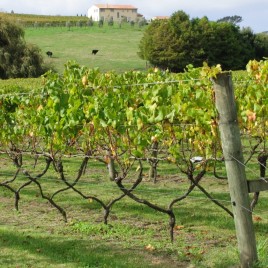
How a wine gets it’s unique flavour
The terroir of a wine, or the flavour that arises from the environment in which it’s produced, is affected by the types of microbe in the vineyard and the yeasts used during the fermentation process according to a new study. Using six genetically different populations of a microbe, S. cerevisiae, from six wine growing regions, […]